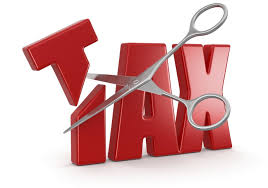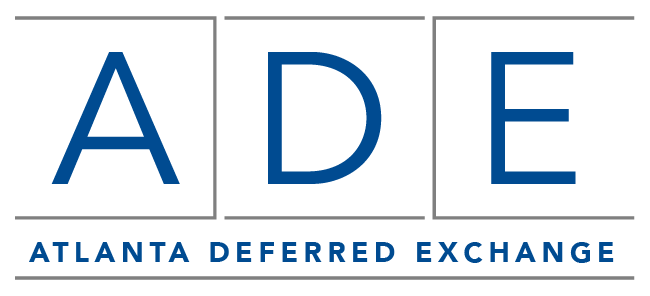
Qualified Opportunity Zone (or “QOZ”) fund investments are a hot topic and have been receiving a lot of press lately. Many new offerings have been appearing, heavily marketed as a more beneficial vehicle than a 1031 exchange for deferring gain and maximizing returns. A closer look shows that while these investments may offer some advantages when a 1031 fails or help defer gains on investments that are not eligible for 1031 treatment, QOZs fail to meet or beat the advantages a 1031 can offer.
When created in 2018, the idea of a QOZ was to attract people to invest money in underdeveloped areas. Though the idea of raising capital to deploy in needed areas through tax incentives was not new, most experts indicated that the QOZ approach offered improved tax perks and a more workable implementation structure that should lead to a win-win scenario for both the targeted communities and for investors. (The governors of each state who wanted to participate submitted a list to Treasury of what they considered to be areas that met the definition of “underdeveloped” or “underserved”. Treasury reviewed and, except for minor adjustments, accepted the areas submitted. These designated areas can be viewed online at QOZ Map of USA or other online websites.)
So what do QOZs offer? The advantages may include:
· Gain due on any appreciation of an investor’s capital in the QOZ fund when sold is excluded in the year of sale. If cash investment in the QOZ fund generates a gain when sold, then the gain is tax-free. A minimum holding period of 10 years is required to exclude any gain from appreciation of the asset sold.
· There is a deferment of tax otherwise due on sale until 2026. There may also be a one-time discount on any deferred gain if certain timing requirements are met. If an investor’s funds come from the sale of qualified assets like the sale of a business, real estate, stocks, bonds, partnership interests or “flip” property, as examples, then the tax that would otherwise be due in the year of sale will be deferred until 2026. If these cash gain dollars are invested in the QOZ fund by 12/31/2019 (resulting in a 7-year hold), then tax on only 85% of the deferred gain portion will be due, reflecting a 15% discount. But if there was only a 5-year hold (i.e. originating between 1/1/2020- 12/31/2021), then only a 10% discount is allowed. In short, any deferred gain gets extended until 2026, but the discount on the gain depends on a holding period.
· The assets that qualify for QOZ is much broader than 1031– the sale of a business, stocks, bonds, partnership interests or “flip” property will work with QOZ and not 1031.

· To qualify for any QOZ tax benefits any cash that is part of the gain from the sale of qualified asset must be invested into a QOZ fund within 180 days of the sale– the same deadline as a 1031 exchange.
Other helpful articles can be found at QOZ Funds- Bridges & QOZ Not A 1031 Replacement- Rappaport .
So what are the disadvantages to a QOZ fund Investment?
· QOZ ownership does not qualify for replacement property under a 1031 because it is sold as an interest in an investment fund. Fund interests don’t qualify for 1031 treatment. These interests are structured as partnership interests and sale or purchase of partnership interests does not qualify for 1031 treatment.
· QOZs have a high amount of fees that can dilute both the return on capital through distributions and the return of capital when sold. The fund managers/promoters of QOZ funds take a number of fees when establishing and selling the funds, managing the funds, and ultimately selling assets within the funds, including a “waterfall” participation fee. Along with higher annual selling/organizational fees of 8-12%, these combined deductions can reduce potential profits and appreciation payable to investors by 25-40%. Based on the costliness of the QOZ funds, are they an attractive real estate investment, prior to considering any tax incentives? Or are all of the advantages marketed at the back-end, when returns are less knowable?
· The vast majority of QOZ funds are blind pools, giving limited information on what properties are included- so you may not know what you are really buying. For investors that like to review properties being purchased, there can be little to no specific information on individual properties. There are also tight timelines for the installation of improvements on properties within a fund; any property purchased must have improvements worth at least 50% of the original cost installed within 30 months. And during the years that properties are ramping up, the preference return due may end up being paid from your original investment.
Let’s assume you are selling an investment property that qualifies for 1031 treatment. What happens when you compare the benefits of a 1031 exchange with an investment in a QOZ fund? Assuming the property you are selling is eligible for 1031 treatment, five areas bear comparison:
1. Under a 1031 exchange, 100% of the tax is deferred indefinitely vs. all deferred tax due in 2026 less a potential discount of 10% with QOZ– Using a 1031, as long as you buy replacement property that is the same value or greater than what you sold and use all of the cash proceeds, then all gain and any tax due can be deferred. If you instead buy into a QOZ fund, you may be able to get a 10% discount on any deferred gain if you have held the fund for 5 years, but in 2026, 90% of the tax must still be settled.

2. If you sell property purchased in a 1031 exchange, you must do another 1031 to continue indefinite gain deferral. But after 10 years of ownership, there is no tax due from any “appreciation” gain when the QOZ asset is sold. In a 1031, you can defer the gain indefinitely by doing additional exchanges on subsequent qualified sales. A QOZ fund can sell property after 10 years of ownership and no additional tax will be due (above what was already paid in 2026 but depreciation will have to be recaptured). So there is no tax due on sale as it relates to the appreciation portion of the gain.
3. Under a 1031, any recapture of depreciation is deferred. But, if you reinvest in a QOZ fund, tax will be triggered on recapture of depreciation. If you are selling improved property, you will have taken depreciation. Recapture of the depreciation gain is deferred in a 1031. Not so with a QOZ. So while you can defer all the capital gain (appreciation gain) until 2026 when you invest the profit in a QOZ, you will still have to pay tax on the recapture of the depreciation- immediately. The Federal Rate on recapture is 25% plus any state tax percentage.
4. Under a 1031 exchange, all states (except PA) allow gain deferral. Conversely, many states do not recognize QOZ tax benefits. For example, Georgia and South Carolina recognize these funds, but North Carolina and Alabama do not. Leaving tax due from a state perspective can mitigate some other advantages that these funds might offer and reduce overall returns.
Assuming that the property you are selling will not qualify for 1031 treatment, do the QOZ funds make sense? They may. The QOZ fund deploys cash in underserved areas, gives you a tax discount on part of the gain and no tax due on appreciation if you hold the investment for 10 years of more.
Finally, can a QOZ be a parachute from a 1031 that goes south? Again, that depends. To defer any gain with a QOZ, the law requires that you invest your gain cash within 180 days of the sale of your asset. If you started a 1031 but fail it by not submitting an ID by day 45, your funds can be released. You could then redeploy the gain portion of the cash in a QOZ. If your funds can’t be released until after 180 days, then you will not meet the deadline to invest.
In summary, if you want to defer all of the gain indefinitely on an asset that qualifies for a 1031, choose the 1031. It’s the clear winner. If you have recapture of depreciation on the property being sold, then a 1031 offers the gain deferral advantage.
If your asset doesn’t qualify for 1031 treatment or you attempted a 1031 exchange but have failed to meet the 45 day ID requirement, you may want to take a comprehensive look at the returns offered on a QOZ, along with the holding period required, and see if it works for you.
